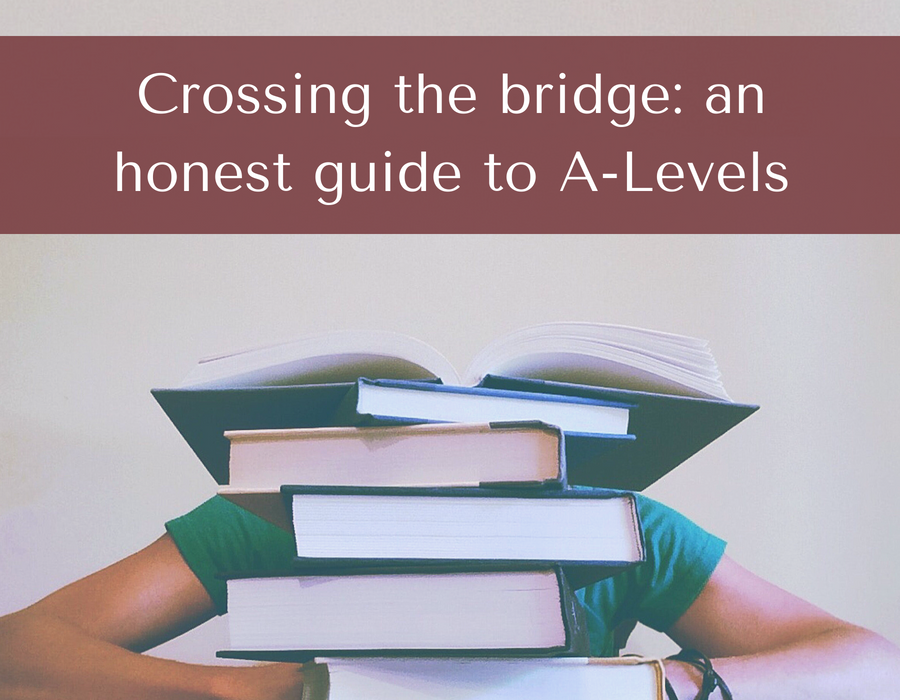Zarin Alam
So, you’ve gotten your GCSE results yesterday, explained the 9-1 system to prying relatives again and now you’re most likely looking to start your A levels in September. If I could roll up everything I have to say to you in one sentence, it would be this:
Congratulations! Now, run.
It’s not realistic, I know, but you won’t find more honest advice anywhere else.
But since A levels are the bridge many need to cross to reach their goals – and nobody heeds the advice of the experienced, anyway – I will pretend I was giving you responsible, figurative advice:
Congratulations – because you’ve finally reached a goal that was five years in the making – and run – because with A levels, you simply have to hit the ground running.
Now, if you’re interested in an A level survival guide from someone who has no business giving advice but has somehow made it through the madness you are about to embark upon, read on.
1. Start on Day One
We often hear the phrase “start as you mean to go on” but as students, we are all too familiar with the last minute, post-midnight rush to finish essays and assignments. And often, that panic-induced adrenaline produces good work.
In secondary school.
A-levels are a whole other ball game. Except the ball is a boulder and the pitch is constantly moving under your feet.
Yes, you can still come up with great last-minute essays and feel like a genius when they hit the top marks. But the sheer volume of work involved and requirements to fulfill within inflexible deadlines is what makes it necessary to be tuned into your subjects from day one; organising yourself so you can meet self-imposed deadlines, familiarising yourself with course requirements and making sure you understand material as and when you are taught them are just as important aspects as the quality of individual assessments.
To use the term commonly applied to medical education, it’s like “drinking from a fire hose”.
It can be done and done well. You just need to be ready to dive in on day one.
2. Put Your Name in the Hat
I hate the sort of trite advice that runs along the lines of “just put yourself out there!”. It can be extremely difficult for some, especially if you are doing your A-levels in a new environment. And what about if you have anxiety or depression and cannot always force yourself to engage in class discussions or pretend to be vivacious?
But the truth about A-levels is that there isn’t always enough time for others to get to know well you, your needs or the best way you learn. You need to find a way to be heard, understood and valued. Whether that means joining clubs that interest but scare you, speaking to or emailing teachers so they understand any problems or limitations you face or pestering them to re-teach you the same material for the eighth time because you still don’t understand, take that step. The time has come to take charge of your own learning experience.
3. Know Yourself
Picture a group interview where you are asked to share three interesting facts about yourself on the spot. Now picture yourself going blank and floundering.
For many, that is a personal statement.
How do you compact 17 years of life into 4000 characters, while also demonstrating your passion for your chosen course at university?
A key part to doing just that is to know yourself and what you have to offer.
Make a list and make it now. Give it a name because this list will be your friend for the next two years.
In this list, write down all of your key achievements and academic strengths, your interests and your passions. Update this list as you make new discoveries and achieve new things.
This list will be invaluable when the time comes to pen down who you are and why you love what you want to do for strangers who will determine your fate.
4. Strike Out and Keep the Faith
I cannot stress enough the importance of seeing what’s out there for yourself because for many of us, the destination is off the beaten path. Find out early about Open Days and taster courses and go to all the ones that interest you. Discover the reality of what studying the courses you like means. Your teachers, especially if they have never worked with you before, are using probability and their experience of who they think are similar past students to predict where you will end up and guide you to where you should go. But only you know what you can truly do and if you know you can achieve more than people think you are capable of, strike out on your own and do the work that needs doing. It is vital during A-levels that you do not settle for less than you want because this is your biggest opportunity to steer your life in that direction.
And do not ever let your faith and determination get shaken by people who say you can’t do it. I can only share the anecdote of the teacher who had never met me or seen my work before but barred me from a careers talk for medicine at our sixth form – stating so matter-of-factly and half-laughing at how ludicrous the idea was – that I had “no chance of studying medicine” and would never achieve my life-long ambition.
I am now starting my fourth year in medical school.
5. Mitigate, Don’t Litigate
Things will happen. Family members may pass, parents may fight, you may struggle with mental health issues or face physical challenges.
Do not brush them off. If something is affecting your well-being or education, make your teachers and head of year aware. Do it as early as possible and as many times as you need to. Do not be embarrassed to do so, even if it feels like you are the only one struggling.
Your teachers may even be able to inform the exam boards and help you apply for mitigating circumstances.
Do not suffer in silence throughout the two years and watch your grades suffer as a result. Prevention is better than cure.
With all the challenges of A-levels discussed in this article, I don’t mean to tell you that you are entering two years of bleakness. As stressful as it is, this will also be the most control you have over your education and direction so far in your academic career. This in itself is freeing and allows you to experience things outside of what your sixth form or college have to offer so you can understand better who you are and where you want to be.
Use these two years as a tool for knowledge and self-discovery. They will be over before you know it.
*
Be on the lookout for Seeking Science’s A level STEM survival resources, coming soon!




